#Seonjae Kim
Text
The Rise and Fall of ‘KPOP’

Why is this groundbreaking Broadway musical closing so soon? The tale of its creation, evolution, marketing, and critical reception offers plenty of clues—and some glimmers of hope.
BY MARCUS SCOTT
KPOP will play its final Broadway performance this Sunday, Dec. 11, after 44 previews and 17 performances (during previews, the show canceled multiple matinee performances and one of the leads got COVID, prompting producers to move its official opening night to Nov. 27, one week after its initial opening celebration). This makes this historic musical the shortest-running Broadway musical since Neil Bartram’s The Story of My Life shuttered after 19 performances in 2009.
Cancellations and delays have become commonplace as Broadway rebounds from a pandemic and a global quarantine that affected all live gatherings, but theatre in particular. The closure and slow return has had a major impact on Broadway, with 2021-22 revenue and attendance taking major hits, falling from the historic record of $1.829 billion set by the 2018-19 season to the total of $845.4 million last season. These statistics by the Broadway League indicate a plunge of 54 percent, marking a drop in audience attendance, which saw a record high of 14.7 million in 2019 but fell to 6.72 million this past year. Shows like the long-running Phantom of the Opera and A Strange Loop—an artistic triumph which won the Pulitzer Prize for Drama and earned the Tony Award for Best musical at this year’s ceremony—will end their respective runs on Broadway early next year. Even Stomp, the Off-Broadway percussion-and-movement mainstay, is set to end its 29-year run at the Orpheum Theatre next month.
One might surmise that KPOP, a pop musical penned and composed by three hip yet largely unknown theatre artists, was in part a casualty of some of these seismic forces. But the story isn’t that simple. Like many shows, it faced delays and cancellations due to COVID, but ticket sales were markedly anemic throughout the show’s preview period, leading many to point fingers at the show’s faulty marketing efforts to attract younger audiences and fans of the increasingly popular Korean music genre that gives the show its title.
And then there was the question of the show’s critical reception, which was decidedly mixed. Most reviews weren’t positive, with at least one major exception (Variety posted a rave), but it didn’t help that The New York Times’s Jesse Green had nothing nice to say about the show, comparing it unfavorably to KPOP’s 2017 Off-Broadway staging and writing that “those who aren’t hard-core fans of the genre or don’t understand Korean” would probably not enjoy the show (a bizarre appraisal, considering the show is performed primarily in English, with occasional Korean lyrics and dialogue, and with its Playbill making history as the first to be bilingual). Green also received criticism for referring to Jiyoun Chang’s million-dollar kilowatt lighting designs as “squint-inducing,” an unfortunate word choice that led many to perceive his review as racist, even if unwittingly so; producers and cast members went so far as to ask Green and the Times for an apology, though none was forthcoming.
Naturally, when news broke that the show would end its run just two weeks after its official opening, the theatre community went into an uproar about what went wrong with a show that so many—and not just those involved in its making— thought deserved a better chance to find an audience.
“Globally, this is a case of how the status quo of Broadway marketing (run by predominantly white people) fails to lift up projects attempting to bring new diverse audiences to Broadway,” wrote associate director Seonjae Kim via e-mail.
How did KPOP arrive at this crossroads? Just before Thanksgiving and the show’s postponed opening night, I spoke with members of the creative team. The behind-the-scenes story of this groundbreaking musical is a tale of intense collaboration, evolving perceptions and intentions, and a lot of creative tinkering. Just as KPOP deserved a longer run, this story ought to be told.
Blast Off
On a mid-November afternoon, when I finally got in touch with composer Helen Park, she was holed up in the lower lobby of the Circle in the Square Theatre between rehearsals, surrounded by a wall of placards and production photos taken at the venue over its celebrated 50-year history. Connecting over FaceTime, our initial hellos were a bit klutzy. It’s not every day you’re tasked with interviewing a friend, after all: Park and I both attended New York University’s Tisch School of the Arts, where we enrolled into the Graduate Musical Theatre Writing Program in 2011. There we spent two years finessing our craft, fidgeting with our skill sets, and finding our voices. Similar to my own experience, Park faced and fought the stereotypes and preconceptions of patronizing elders in the musical theatre field. She’s a global citizen woman of color who writes radio-friendly ditties with an effervescent pop sheen, in the face of a post-Sondheim white cis-het male-dominated industry; I’m a lower-middle-class Black poet and journalist-turned-librettist-songwriter who had more in common with the security guards manning the entrances than the trustafarian hipsters and preppies who frequented the campus.
Park handled it all like a boss, probably because she has a knack for proving others wrong. At the age of 5 in Busan, Korea, she began playing classical piano, learning Schubert, Chopin, and Rachmaninoff. At age 9, her father’s studies brought her to Missouri for two years, where she played state-level competitions. In sixth grade, she attended a musical theatre summer school in Virginia, cementing her love of the craft with a production of Mary Rodgers’s musical comedy Once Upon a Mattress. After attending middle school back in her native Korea, she convinced her parents to send her more than 7,000 miles away to a Christian conservative boarding school in Alberta, Canada, where she would spend her high school years listening to ’90s and early-2000s Korean pop ballads as a source of comfort and connection. After a stint studying life sciences, she moved to the Big Apple, where she befriended co-lyricist and co-composer Max Vernon.
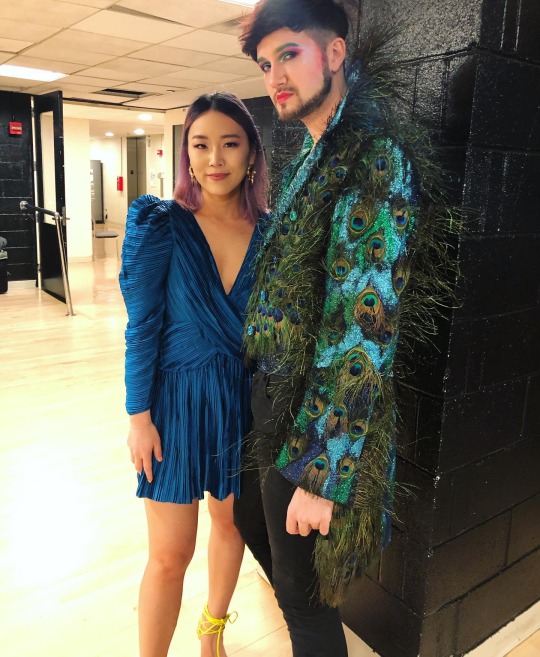
Vernon and Park’s collaborations began in graduate school, when a joint assignment led to The Lament of Asian Girl #3, a satirical romp about stereotypes and casual racism in the film and theatre industries. Park told me she really responded to Vernon’s lyrical style, describing it as edgy, fresh, and singular. In 2014, Park was approached by Vernon, who was already in talks with Ars Nova about developing a musical about K-pop; Vernon introduced her to director Teddy Bergman of Woodshed Collective, as well as co-conceiver and librettist Jason Kim. She then partook in a sort of bake-off developmental workshop, alongside AAPI storyteller A. Rey Pamatmat, playwright Jeremy Lloyd, and the songwriting team of Maggie-Kate Coleman and Erato A. Kremmyda.
“We were experimenting with having many different composers write this score,” said Park, who music-directed and contributed two songs to that initial workshop. “But we all felt there needed to be cohesiveness to the score, because they were all so different from each other. So Max and I became a team from there.”
Bergman described the origin of KPOP as an “arranged marriage” orchestrated by Ars Nova, with artistic director Jason Eagan and former associate artistic director Emily Shooltz bringing together a team to explore an immersive show set in the K-pop universe. Little did he know that Kim and Vernon, members of Ars Nova’s Uncharted program, had already been ruminating on the same subject. After a successful series of workshops in 2016, Ars Nova greenlit the musical for a limited engagement.
Meant 2 Be
For those who saw the 2017 production, including many critics, the new Broadway version of KPOP feels more like a reinvention than a reboot—a spiritual successor from an alternative timeline or fictional metaverse, if you will. Performed in the expansive A.R.T./New York Theatres space, the Off-Broadway production divided audience members into groups who were given a tour of JTM Entertainment, a fictional K-pop music factory owned by South Korean power couple Moon (played by James Saito) and his wife Ruby (Vanessa Kai), hoping to break into the North American market with their brand of infectious pop. Tapping the San Diego-born Korean American agent Jerry (James Seol), they strategized to tip the scales in their favor, plotting world domination with their contagious confection of earworms.
Theatregoers who toured the multilevel, multiroom facility were then introduced to the five-member boy band F8, the six-singer girl group Special K, and Seoul’s reigning glitterball prima donna, MwE (Ashley Park, in a star turn before her Tony-nominated performance as Gretchen Wieners in Mean Girls). They also met the company’s toxic in-house plastic surgeon Dr. Park (David Shih), ferociously vicious vocal coach Yazmeen (Amanda Morton), and ruthless dance instructor Jenn (Ebony Williams, last seen as a backup dancer on Beyonce’s Formation tour and best remembered for the “Single Ladies” music video).
Onlookers observed as the JTM artists were put through the wringer: Required to participate in mandatory rehearsals to flawlessly execute physically demanding vocal and dance exercises, they were also expected to workshop and generate new recorded material around the clock, to cultivate their fickle fandom via social media, to receive media training, and to confront their body dysmorphia via a rhinoplasty examination for any facial imperfections. And this summary barely scratches the surface of a show that also addressed themes of xenophobia, racism, and child labor.

Audiences, and most critics, relished the soap opera-esque storytelling, with larger-than-life Asian performers playing multi-dimensional protagonists rather than sidekicks or tertiary tropes. That iteration of KPOP would go on to become the most nominated show of the 2017-18 theatrical season, taking home the Lortel Award for Outstanding Musical, a Richard Rodgers Award, and an Off-Broadway Alliance Award for Unique Theatrical Experience, while earning multiple nominations for both the Drama Desk Awards and Drama League Awards.
Even before the show received these plaudits, a Broadway transfer seemed imminent, with lines trailing down city blocks and theatregoers cosplaying as characters from the show. Yet no one could predict the trajectory of pop culture, or of Broadway, within the demi-decade to come, and that’s where things get tricky.
Super Star
Five years later, there’s no denying that K-pop has found a home in the land of Stars and Stripes. Just ask the legions of superfans backing radio leviathans like Blackpink (the highest-charting K-pop girl group on the Billboard Hot 100 and Billboard 200), Seventeen (the first K-pop group to be nominated and win the MTV Push Performance of the Year), Girls’ Generation (recent Guinness World Records holders), SuperM (the first Asian artists to top the chart with a debut release) and BTS (the first act to have six consecutive No. 1 singles on the Hot 100 in the shortest amount of time since The Beatles), to name a few. While there has yet to be a singular crossover superstar equivalent to the likes of Lizzo, Billie Eilish, Anitta, Doja Cat, or Olivia Rodrigo, it is only a matter of time before K-Pop produces its own international superstar. Blackpink’s Lisa, who was recently honored at the 2022 Video Music Awards for Best K-Pop for her solo single “Lalisa,” could be a contender.
KPOP director Teddy Bergman recalled a sold-out BTS concert at MetLife Stadium in 2019, marveling at “the umbrella of who was in that crowd, not only AAPI audience members, but just a wildly diverse audience base there, singing along to songs in Korean.” Bergman, the son of first-generation German Jewish refugees, added, “Seeing that radical expansion brings up questions of, when the tent of your music gets so large, what piece are you holding onto? Like, is there a question of the dilution of the form as you’re spreading it further and further and you’re reaching a wider audience?”
Among other things, such rapid development in the cultural milieu meant that the writers would have to update their references. Vernon said that when the show was initially conceived, the creative team was influenced by an earlier generation of K-pop stars: Wonder Girls, Girls’ Generation, SHINee, 2NE1, Big Bang, Exo, Psy. By the time the show was headed to Broadway, the songwriting team had turned their ears to a new generation: BTS, Blackpink, NCT 127, Seventeen, New Jeans, Monsta X, and Vernon’s personal favorite, Lee Tae-min of Shinee and the supergroup SuperM. For her part, Park name-checked inspirations as wide-ranging as You Hee-yeol of the one-man band Toy, R&B music icon Stevie Wonder, global music megastar Michael Jackson, jazz, and ’90s sentimental pop ballads.
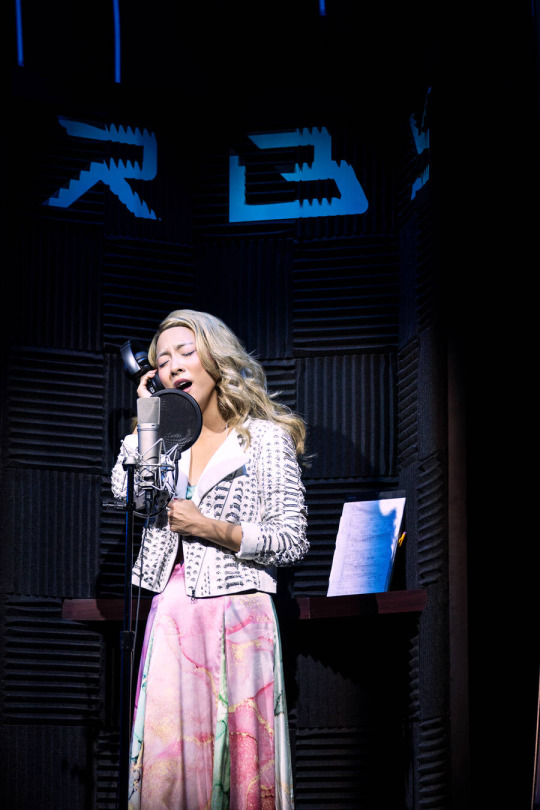
Changing perceptions of K-pop would also demand a different focus for the show: The burning question for the KPOP characters this time around wouldn’t be whether these acts would go mainstream, but rather what they would be forced to sacrifice in that crossover: their identity, as they assimilate into the global market, or their autonomy and individuality as they reach the upper echelons of fame?
The other big challenges of the Broadway transfer were scale and form: Not only were none of the 41 Broadway theatres equipped to present an immersive experience of the kind the previous KPOP had, but, as book writer Jason Kim wrote in an email, the original script “was over 500 pages. We had to include so much content to fill every corner of every room in the building. Cutting out parts of the story happened by necessity, but we also embraced it as an opportunity to distill the story down to its most essential points.”
The result that’s currently at Broadway’s intimate Circle in the Square features an 18-member cast and four swings, including real-life K-pop idols Kevin Woo (of boy band U-KISS), Min-Young Lee (of girl group Miss A), and Bohyung Kim (of girl group Spica and music duo Keembo), not to mention Korean multimedia singer-star Luna. Audiences are on hand to observe rehearsals for a one-night-only concert affair to be presented by a K-pop corporation called RBY Entertainment, which is looking to introduce their roster to America. K-pop impresario and momager Ruby (an attention-grabbing Jully Lee) is hedging her bets with three of them: the newly formed RTMIS (pronounced Artemis), the riveting F8 (pronounced fate), and her muse and prima donna of the dancefloor MwE (pronounced mu-wee), an orphan Ruby has personally raised for fame. The show’s form now resembles a combination of early-aughts VH1-style Behind the Music docudrama and memory play, telling the story of MwE’s road to superstardom through flashbacks and snapshots of her life, from her initial audition as a wide-eyed tween with big dreams and impressive pipes through the elaborate, Vox Lux-esque stage performances of her first world tour.
The new version of KPOP is in fact mostly focused on MwE and her struggles for independence, artistic freedom, individuality, work-life balance, and childhood trauma. While stage time in the 2017 production was evenly distributed, the stories of the other bands have been significantly if necessarily streamlined: Special K has been whittled down to the five-member RTMIS, though F8 has expanded from five to eight members. (And gone is MwE’s supposed younger shadow self, waiting in the wings to dethrone her.) Instead the new script introduces Juny, MwE’s guitar-plucking, golden-voiced boyfriend, who is intent on rescuing her from her gilded cage (played by a delightful Jinwoo Jung, seen in KPOP Off-Broadway as F8 member Oracle). Recording the spectacle is fame-hungry documentary filmmaker Harry (played by Aubie Merrylees, in a thankless part), who wants to turn the concert and its behind-the-scenes drama into a vehicle that will land him recognition and awards on the festival circuit.
On paper, this all sounds fine. But when one makes comparisons to that edgy original Off-Broadway production, the trials and tribulations faced by the RBY artists in the Broadway production come across as champagne problems. In the original production, the F8 segment focused on the cultural divide between South Korea and the U.S.; the Special K segment focused on the intersection of racism and sexism with regard to the unrealistic expectations of perfection; and the MwE segment interrogated the commodification of child stars. On Broadway, only the latter concern is truly explored in depth, while the challenges facing F8 are merely glimpsed and the RTMIS story is virtually non-existent.
There’s also the difference between Jerry and Harry. In the 2017 script, Jerry was a Korean American who had bought into respectability politics and the model minority myth, and was enforcing assimilation and cultural agility on the talent under his care. Jerry wasn’t a simple villain, as at the climax he realized his error and faced his internalized racism. But in the new script, Harry is little more than a stand-in for the exploitative, imperalist white gaze, demanding that the biracial, people-pleasing Brad (Zachary Noah Piser) translate what the other boy band members are saying in Korean in return for a stronger spotlight in the documentary.
Songwriter Vernon explained these choices in part as a result of the sea change in K-pop’s popularity.
“When we started writing almost nine years ago, it was about whether or not K-pop could transfer and cross over to an American pop market, and we were asking ourselves questions of what would the sacrifices those artists would have to make in terms of their own personal and cultural identity to appeal to American audiences,” Vernon told me during a break from rehearsal for their show The Tattooed Lady, which ran just before KPOP‘s opening at the Philadelphia Theatre Company. “I think one of our main assumptions was that there would have to be a much greater cultural sacrifice, so we had this character of Jerry, this American consultant who was encouraging the K-pop artist to do things that were in many ways harmful to who they were, hiding who they were in order to appeal to America. At the end of the show, the realization was that actually the best way to appeal to America is just that the K-pop artists be fully themselves; they don’t need to cross over to us, we need to cross over to them. In 2017, that was a really powerful message, but since we did the show, K-pop has crossed over.”
Added Park, “Through the pandemic, there was this reckoning. Asian Americans and people of color started grappling with their own identity; it was so important to us to honor as much authenticity as we can for K-pop and Korean pop culture, so our focus kind of shifted, which meant the story had to change. Instead of asking, why hasn’t K-pop crossed over into the U.S., we started to go into what is the experience of being a K-pop star? What is the joy and exhilaration, but also the sacrifice?”
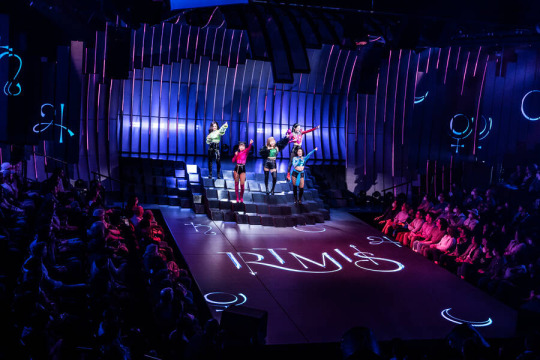
Still, without the animating drama of crossover, audiences for the new KPOP—both K-pop diehards and the uninitiated—may be confused about what they are supposed to take away from the show. Here’s where the critiques of Jesse Green and others, however pointed or problematic, aren’t totally unfounded. By making such changes, one could argue that the KPOP team turned one of the most singular, innovative, and genre-bending triptych theatrical productions of the last 25 years into one of the most traditional, bare-bones, and sanitized productions of the post-pandemic era. Instead of showing the rot beneath the sparkling ruby, this version of KPOP only covers it up with more precious gems; the sharp, subversive edges of the original were dulled and smoothed down or completely obscured, and the darker extremities explored in 2017 trimmed away.
I think the creative team made the incorrect assumption that because K-pop has exploded in the U.S., Americans are likewise familiar with South Korean customs and culture, which couldn’t be further from the truth. You would never guess from KPOP that South Korea has one of the highest suicide rates among OECD member nations, with a 2016 study finding that 30 percent of South Koreans suffer from mental illness, though only half seek treatment. Or that in the last five years, there have been a string of notable suicides in the Seoul music industry, including songwriter-producer Kim Jonghyun of Shinee, barrier-breaking industry rebel Sulli of f(x), and actress-singer Goo Hara of Kara. Imagine the power of a script in which the animosity between F8 members and hapa newcomer Brad arose in part because the band member he replaced had committed an act of self-harm instead of simply being mysteriously fired. Or, given K-pop’s trend of queer-baiting, its litany of “skinship” performances from acts like NU’EST, VIXX and OnlyOneOf, having an openly queer member of F8 would have certainly added nuance. Imagine what that could have done for songs like “Han Guk Nom (Korean Man)” and conversations around Asian masculinity in South Korea’s often conservative Christian society. (John Yi’s commanding, laugh-out-loud performance as F8’s smoldering Danny, for example, would be an obvious choice for this storyline.) This would not only have honored the queer artists who have penned some of the genre’s biggest hits, but the LGBTQIA+ artists who penned KPOP itself.

All of this is not to say that the new KPOP didn’t make improvements. Park Sun-young, known internationally as Luna, gives a nuanced performed as MwE, and the fact that Luna’s own career trajectory bears striking similarities to MwE’s adds a layer of meta-authenticity that wasn’t a part of the 2017 Off-Broadway run. Following a 2006 appearance on the Seoul Broadcasting System reality TV show Truth Game, Luna was scouted by the powerhouse label SM Entertainment prior to making her debut as the main vocalist and lead dancer of South Korean hipster girl group f(x), alongside Victoria, Amber, Krystal, and Sulli in 2009. The quintet earned critical and commercial success domestically and internationally, becoming the first K-pop act to perform at SXSW. And with her role in KPOP, Luna is the first K-pop idol to have a leading role on Broadway.
That’s not the only historic first marked by KPOP: It’s also the first Korean-centric musical with Korean, Korean American, and AAPI representation (on- and offstage) to grace the Great White Way, and only the third Broadway musical to highlight Asian American heritage with Asian Americans in both the cast and the creative team. Helen Park makes history as the first Asian American woman composer of a Broadway musical, and only the sixth Asian composer ever. And Luna isn’t the only one making her Broadway debut; so is almost the entire cast (Zachary Noah Piser, Eddy Lee, Major Curda, and Aubie Merrylees are the exceptions). That places a lot of undue pressure on a show like this, leaving little room for error—ironic for a show about artists striving for perfection.
Phoenix
So why is the show closing? A sentiment shared among industry observers and theatregoers is that the marketing team backing KPOP just didn’t make enough of an effort to target contemporary enthusiasts of the K-pop genre. The producers seem to have hoped those fans would be attracted by the K-pop recording stars in the cast, but there’s a fallacy in this logic: The idol industry cycles through performers cursorily, so that there’s not enough collective memory for that to translate to tickets sales or merchandise (another theme and plot point in the original Off-Broadway production that is all but absent this time around).
“There are a myriad of complicated reasons why KPOP is closing its doors prematurely,” wrote associate director Seonjae Kim in an email. “But in my opinion, a big one is the marketing and outreach. Our social media endeavors were essentially non-existent until it was way too late in the game to build buzz. Many posts were low-effort and failed to utilize even the most basic of algorithm principles (like using hashtags). There are many accounts of cast and team members reaching out with impressive personal connections and promotional opportunities that went unanswered. In my opinion, there was zero strategy and innovation on how to market this incredibly non-traditional show to non-traditional audiences.
She continued, “Amidst the sadness, it’s been a real pleasure to see to see that our houses do not look like a typical Broadway-going audience: so many young folks, AAPI folks, folks carrying signs for their favorite K-pop star in the show. From their enthusiasm, and the fervent energy of the social media campaign once we announced our closing, I have really come to believe we missed our opportunity to tap into the immense spending power of so many who were hungry to see something so different on Broadway. We could have and should have reached so many more of them. I hope that future shows can learn from what happened to us. I hope that how theatre is funded, marketed, and sold can catch up with the innovations of the stories being told.”
A day before the news of the closing broke, producers announced that Sony Masterworks Broadway will release a cast album of the show on Feb. 24, 2023, with record producer Harvey Mason Jr. (one half of the production duo The Underdogs), a veteran hitmaker who has been very prominent in the K-pop scene, at the helm alongside music director Sujin Kim-Ramsey. The show’s blend of power ballads, reggaetón, glow-in-the-dark EDM, nu-disco, progressive house, techno, hip-hop, trap, and Korean wave dance-pop should make it the most anticipated cast album of the season. It will undoubtedly introduce the show to many more folks who could see it during its short run. And who knows? It could even give KPOP a chance at a second life or a future remount, given its massive appeal to young audiences and K-pop fans. If that does happen, future producers will hopefully have learned that the show needs something more than the usual marketing approach and word-of-mouth.
For now, its creators are celebrating the moment while it lasts.
“There is something still inherently radical about this cast, these bodies, inhabiting this story, on this stage, especially out of an unbelievably difficult set of years for everyone and for everyone in very different ways,” said director Teddy Bergman from his Brooklyn apartment as he prepared for an emergency rehearsal. “There’s a tremendous amount of joy on that stage, and I think experiences of collective joy and stories of redemption and hard-won strength and release are necessary public rituals at this moment in time.”
In a new essay for Playbill, Helen Park shares a story about her own young son that demonstrates one way the show is a hit, no matter its box-office numbers.
“He told me he wanted to be in KPOP when he grows up, ‘if it still exists,’” she writes. “He might be too young to realize the significance and the rarity of this, but he saw himself represented onstage, loud and proud, flawed and complicated. He saw himself represented as fully human, on the Great White Way. That’s the moment I felt like I must have done something right.
“I see audiences like my son every night, young and old. I see how their eyes light up as they see themselves represented in the form of superstars. Perhaps for some of them, they’re superheroes.”
Marcus Scott is a New York-based playwright, musical writer, and journalist. He’s written for Architectural Digest, Time Out New York, The Brooklyn Rail, Elle, Essence, Out, and Playbill, among other publications.
The article originally misstated the timing and source of quotes from Seonjae Kim. It failed to mention that a lead getting COVID was a factor in the postponement of opening night, and it also stated incorrectly that the entire cast is making their Broadway debut.
#Marcus Scott#MarcusScott#American Theatre Magazine#KPOP#KPOP musical#Broadway#Off Broadway#Max Vernon#Helen Park#Jason Kim#Teddy Bergman#Seonjae Kim#LUNA#fx#Kevin Woo#ukiss#kpop broadway
0 notes
Text



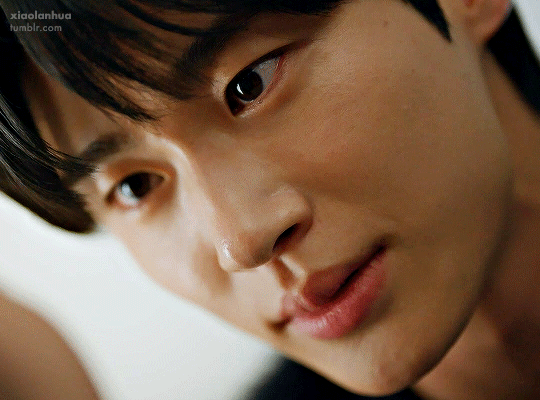





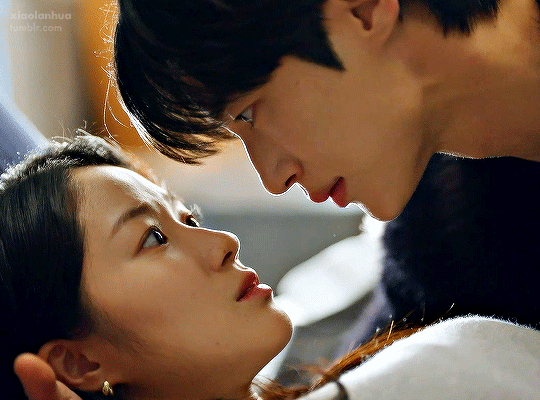
Lovely Runner 선재 업고 튀어 (2024)
Dir. Boo Sung Chul, Yoon Jong Ho, Kim Tae Yeong – Ep. 8
#lovely runner#byeon woo seok#kim hye yoon#kdrama#kdramaedit#kdramanetwork#kdramadaily#userdramas#asiandramanet#asiandramasource#my gifs#*#useryd#lextag#userheidy#udeokmis#roserayne#userhoshii#samblr#director was so thirst for that close up shot of seonjae's...
272 notes
·
View notes
Text
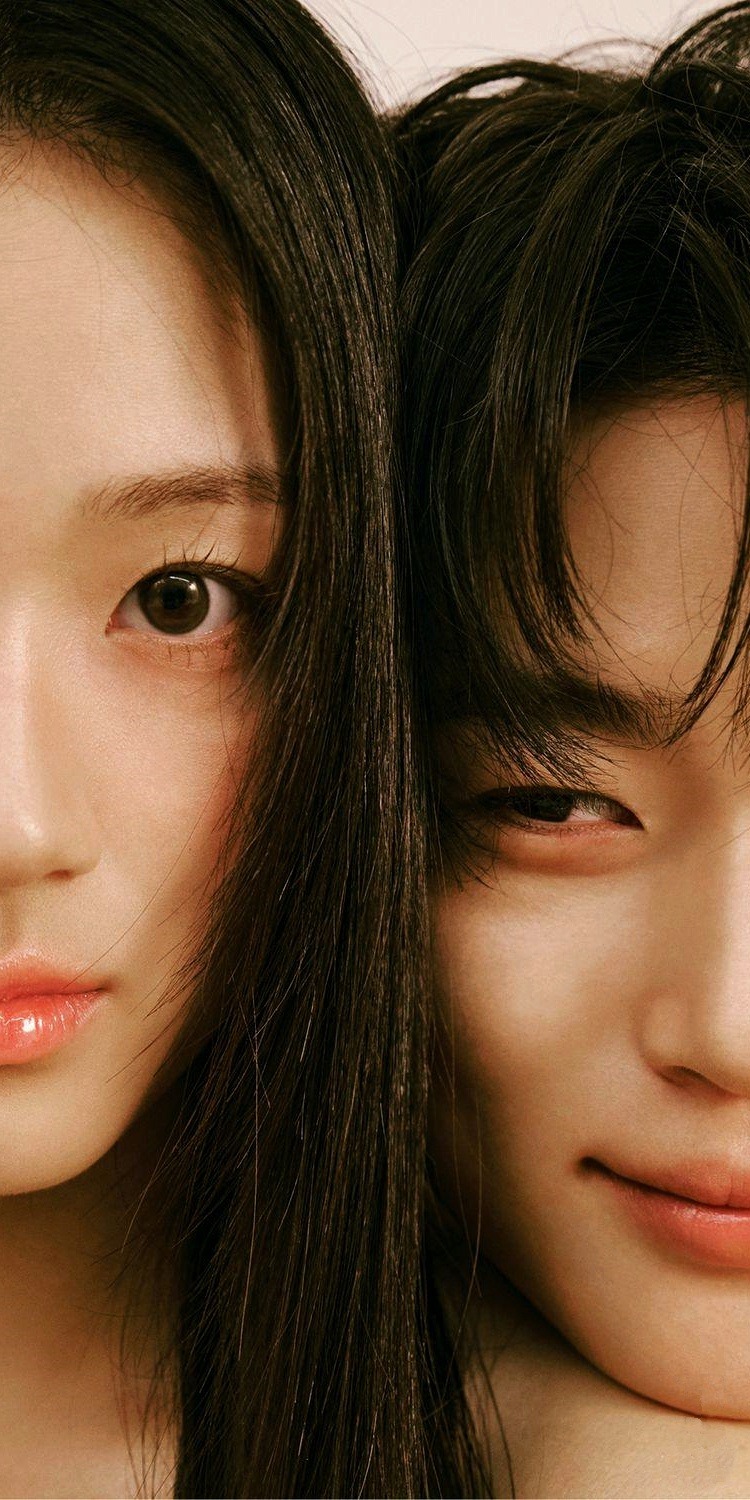

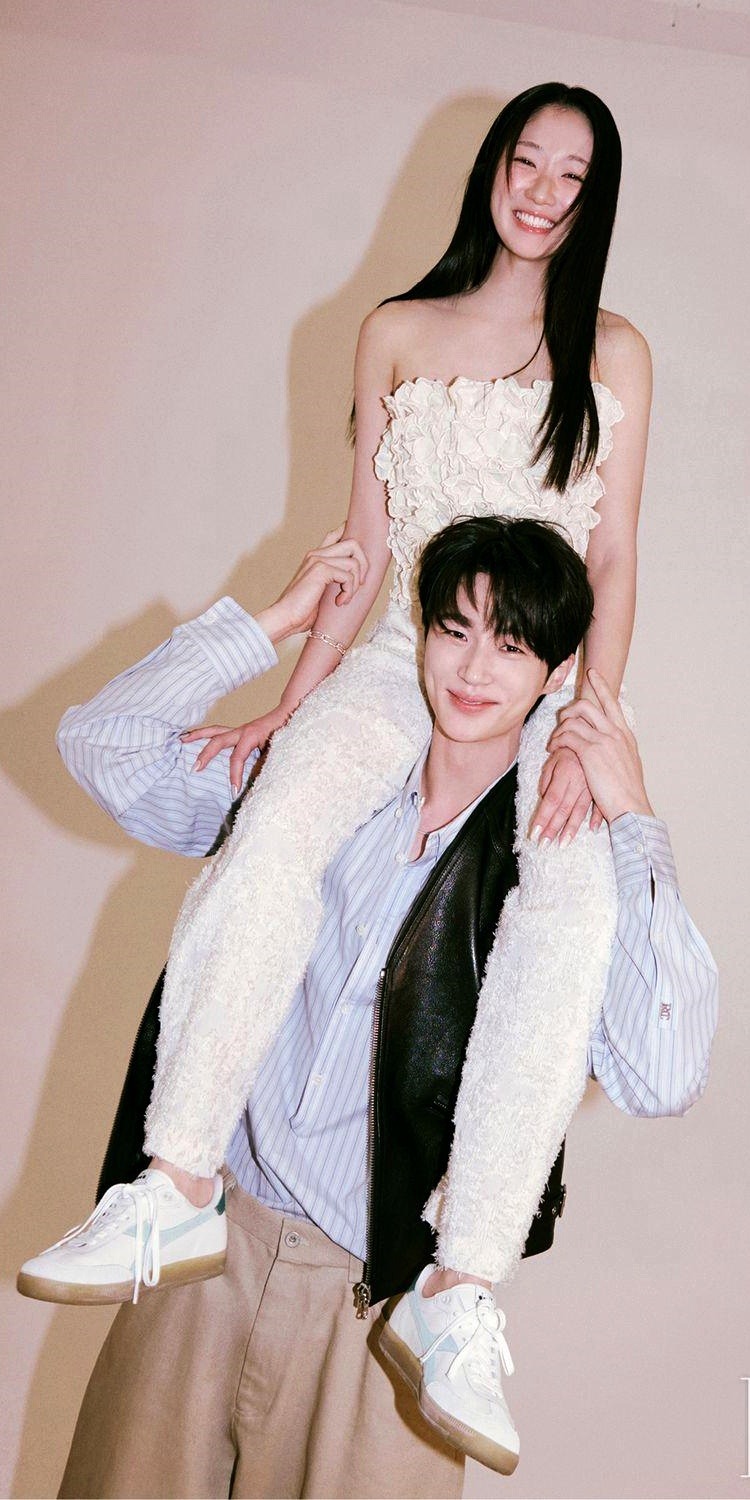
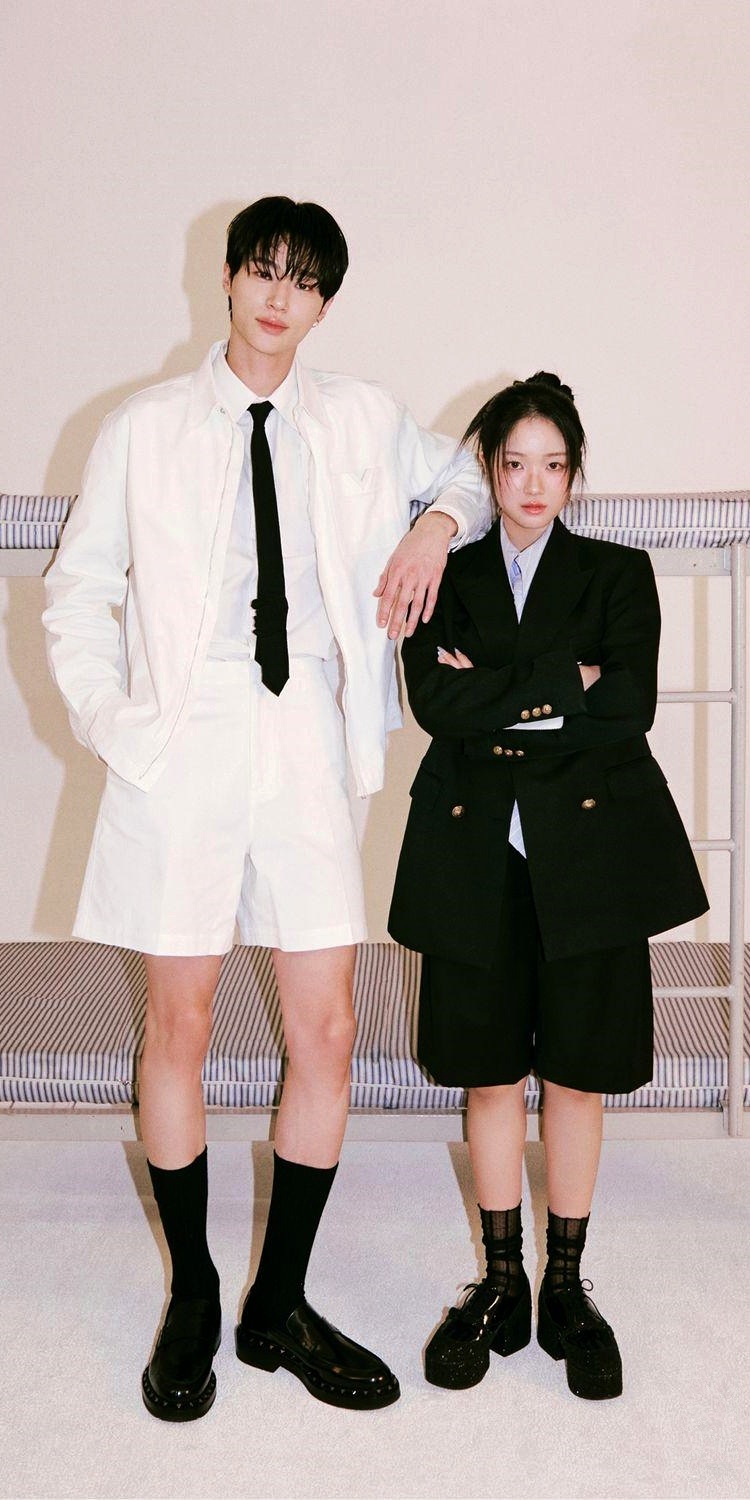

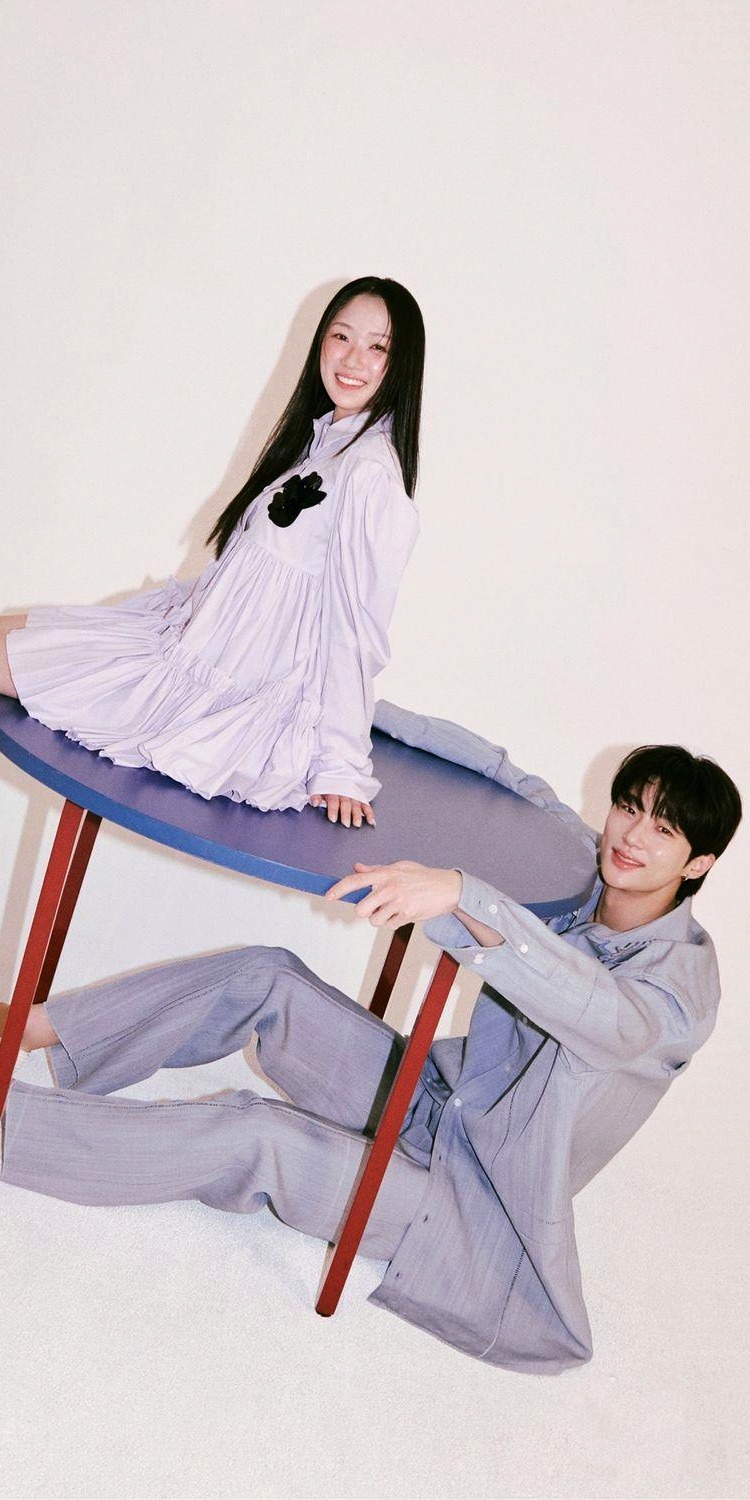
RYU SEONJAE X IM SOL
Please like/reblog If you save...thank you^^
#lockscreen#lockscreens#kdrama#eclipse#ryu seonjae#im sol#lovely runner#lovely runner kdrama#lovely runner lockscreen#lovely runner lockscreens#kdrama lockscreen#kdrama lockscreens#wallpapers#wallpaper#kdrama wallpapers#kdrama wallpaper#byeon wooseok#byeon woo seok#byeon wooseok lockscreen#byeon wooseok lockscreens#kim hye yoon#kim hyeyoon#kim hyeyoon lockscreen#kim hyeyoon lockscreens#byeon woo seok lockscreens#kim hye yoon lockscreens#ryu seon jae#ryu seon jae x im sol
135 notes
·
View notes
Text
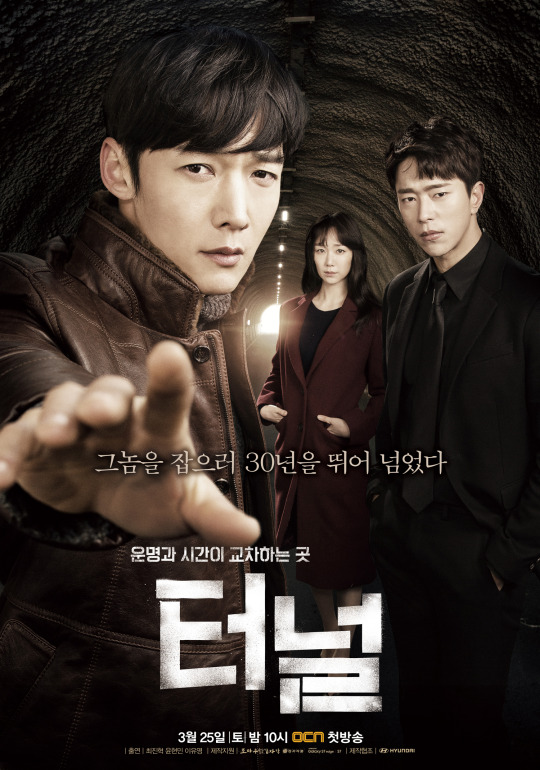
Tunnel / 터널 - Korean Drama (2017) [ 18 + ]
Choi Jin-hyuk (최진혁) / Park Gwang-ho
Yoon Hyun-min (윤현민) / Kim Seon-jae
Lee Yoo-young (이유영) / Sin Jae-i [Park Yeon-ho]
Jo Hee-bong (조희봉) / Jeon Seong-sik
youtube
[ENG SUB] Tunnel (Scripted Trailer) CJ ENM
youtube
[터널] EP 01-01
youtube
[터널] EP02-02
youtube
[터널] EP 04-02
youtube
[터널] EP 04-06
#터널#Tunnel#korean drama#kdrama#Choi Jinhyuk#choi jin hyuk#최진혁#Park Gwangho#Park Gwang ho#Yoon Hyunmin#Yoon Hyun min#윤현민#Kim Seonjae#Kim Seon jae#eng sub#video#Youtube
3 notes
·
View notes
Text
Mungkin project review selanjutnya buat karakter Im Seol dan Ryu Seonjae dalam drama Lovely Runner.
Drama ini bagiku benar-benar relate dengan kehidupan normal.
Ada part yang membuka luka pribadi yang sampai saat ini masih belum sembuh.
0 notes
Text

those who have been accepted are expected to add the base account gossip girl until the 22nd of September.
you may already follow the base account, and will be added to groups and announced upon the opening on the 21st of september .ᐟ
the following applications have been reviewed and accepted :
— txt's choi soobin as kwon yujin, the fallen star.
— blackpink's kim jisoo as thalia song, the queen b.
— stray kids' hwang hyunjin as baek seulhyo, the visionary.
— the boyz's lee juyeon as theodore kan, the golden boy.
— seventeen's kim mingyu as noh taewoo, the playboy.
— stray kids' bang chan as kangdae lee, the noveau-riche reject.
— stray kids' yang jeongin as han inho, the echoed shadow.
— blackpink's jennie kim as seo nara, the heir.
— le sserafim's huh yunjin as kataria elizabeth lim, the it girl.
— aespa's karina yoo as kim sera, the ice princess.
— blackpink's lalisa manobal as chailai 'cherry' chaisana, the rebel.
— bts' kim taehyung as byun insoo, the maverick.
— txt's choi yeonjun as park myunghoon (zeke), the lonely boy.
— stray kids's lee minho as ryu seonjae, the shadow heir.
— fromis_9's park jiwon as seo haerin, the thespian.
#hannam elite : accepted#krp#oc krp#gossip girl rp#mewe krp#krp promo#mewe roleplay#oc roleplay#oc rp#gossip girl#krp lit#krp ad#mewe based#mewe rp
0 notes
Photo

Kim Hye-yoon Stunned As “Seonjae” Byun Woo-seok Made Surprise Appearance at Fan Meeting
0 notes
Note
hi there! do you guys have a master list that I'm not seeing a link to because I'm on mobile? thank you so much!!
— ✻ 𝒉𝒆𝒍𝒍𝒐, 𝒔𝒖𝒏𝒔𝒉𝒊𝒏𝒆! - we don't have a masterlist linked on our tumblr but here is the current, updated list (fcs between brackets) as of today (5 july):
𝒂 𝒕𝒉𝒓𝒐𝒖𝒈𝒉 𝒋
›⠀⠀Bae Iseul (𝒂𝒌𝒂 Kim Mingyu) 𝒂𝒔 human
›⠀⠀Ha Yujin / Cerí (𝒂𝒌𝒂 Choi Yeonjun) 𝒂𝒔 water faerie
›⠀⠀Han Haewon / Saoirse (𝒂𝒌𝒂 Park Sohyun) 𝒂𝒔 shaper faerie
›⠀⠀Han Yesol / Aeralindra (𝒂𝒌𝒂 Park Sooyoung, Joy) 𝒂𝒔 air faerie
›⠀⠀Hou Mingze / Gaulir (𝒂𝒌𝒂 Zhang Linghe) 𝒂𝒔 earth dragon
›⠀⠀Ji Meixia / Meadhbh (𝒂𝒌𝒂 Zeng Keni, Jenny) 𝒂𝒔 fire dragon
›⠀⠀Jung Hana / Aingeal (𝒂𝒌𝒂 Im Dayoung) 𝒂𝒔 spirit faerie
›⠀⠀Jung Sunhee (𝒂𝒌𝒂 Kim Hyungseo, Bibi) 𝒂𝒔 nymph (fire)
𝒌 𝒕𝒉𝒓𝒐𝒖𝒈𝒉 𝒓
›⠀⠀Kang Gunwoo (𝒂𝒌𝒂 Kang Dongho, Baekho) 𝒂𝒔 human
›⠀⠀Kang Taejoon / Ceallach (𝒂𝒌𝒂 Hwang Hyunjin) 𝒂𝒔 fire faerie
›⠀⠀Kwon Yiseo (𝒂𝒌𝒂 Hwang Eunbi, SinB) 𝒂𝒔 human (𝒈𝒊𝒇𝒕𝒆𝒅)
›⠀⠀Min Siyong / Fiachna (𝒂𝒌𝒂 Choi Soobin) 𝒂𝒔 air faerie
›⠀⠀Moon Yoorim / Nimue (𝒂𝒌𝒂 Zhou Xinyu) 𝒂𝒔 water faerie
›⠀⠀Oh Haejoo (𝒂𝒌𝒂 Kim Jiwoo, Chuu) 𝒂𝒔 human
›⠀⠀Ryu Seonjae (𝒂𝒌𝒂 Lee Minho, Lee Know) 𝒂𝒔 banshee
𝒔 𝒕𝒉𝒓𝒐𝒖𝒈𝒉 𝒛
›⠀⠀Seol Sunhwa / Dáithí (𝒂𝒌𝒂 Lee Juyeon) 𝒂𝒔 shaper faerie
›⠀⠀Xin Hailan / Azukar (𝒂𝒌𝒂 Luo Yunxi, Leo) 𝒂𝒔 water dragon
›⠀⠀Xing Mengyao / Xan (𝒂𝒌𝒂 Hou Minghao, Neo) 𝒂𝒔 spirit dragon
›⠀⠀Xu Jingren (𝒂𝒌𝒂 Zhang Xincheng, Steven) 𝒂𝒔 banshee
›⠀⠀Yeon Jiwoo / Caoimhe (𝒂𝒌𝒂 Lee Yongbok, Felix) 𝒂𝒔 spirit faerie
›⠀⠀Yoon Jihyun / Aonghas (𝒂𝒌𝒂 Han Jisung, Han) 𝒂𝒔 spirit faerie
›⠀⠀Yu Boxian / Ríonach (𝒂𝒌𝒂 Ning Yizhuo, Ningning) 𝒂𝒔 water faerie
i hope the masterlist is clear ^^ feel free to ask about specific fcs if you're not sure if they're taken/reserved yet or not ♡
1 note
·
View note
Text

* ⸻ 𝐖𝐈𝐂𝐊𝐄𝐃𝐇𝐎𝐔𝐑𝐒 .
welcome to wickedhours, a blog dedicated to rejects-hq ; written & loved by kina. this blog features han sarang, daughter of the beloved magician & mirage, a former aeternal training academy trainee forced to place her ( her's, or her parents'? ) dreams aside after unexpectedly developing the inability to properly control her power.

# 𝐍𝐀𝐕𝐈𝐆𝐀𝐓𝐄 .
( ♡ ) HAN SARANG ⸻ INTRODUCTION / HERSTORY / PROFILE / PLOTS / MUSINGS TAG .

© est. 2024, WICKEDHOURS .
TRACKER UNDER THE CUT ⤵
starters owed :
none
replies owed :
constellieos, go minji
jisoo-ism, kang jisoo
thegentlesmile, ye song li
recollectionblue, moon seonjae
lucksdraw, kim minhyun
999kintsugi, moon eunjae
#` ♡ ⸻ 𝐌𝐎𝐑𝐄 : PINNED POST .#i was in a silly goofy mood when i made this graphic sjfhdjs#might change it later
1 note
·
View note
Text
Speakeasy’s ‘Wild Goose Dreams’ Is A Surreal Romp Between Two Realities
Ciaran D’Hondt, Fady Demian, Elaine Hom, Ryan Mardesich, Amanda Centeno, and John D. Haggerty in Speakeasy’s ‘Wild Goose Dreams’ Photos by Nile Scott Studios
‘Wild Goose Dreams’ – Written by Hansol Jung. Directed by Seonjae Kim; Scenic Design by Crystal Tiala; Costume Design by Machel Ross; Lighting Design by Kathleen Zhou; Sound Design by George Cooke. Presented by SpeakEasy Stage at The…
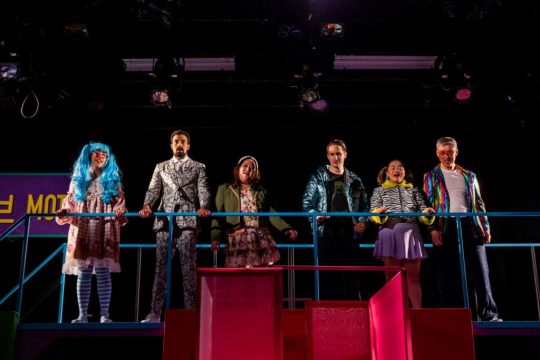
View On WordPress
0 notes
Text
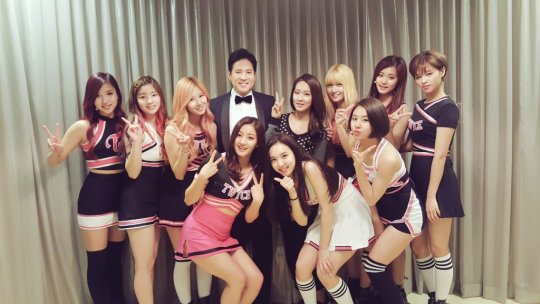
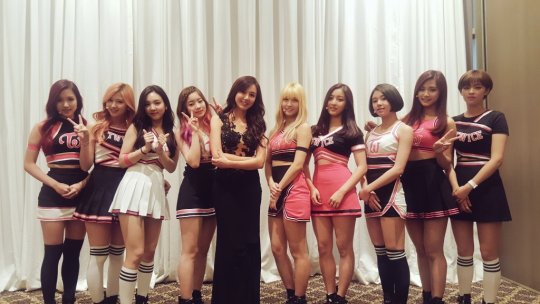
JYPETWICE
2015 KBO 골든글러브 시상식에서 박찬민, 김선재, 김민아 아나운서 분들과 함께 기념사진 찰칵! 원스 여러분, 트나잇♡
1 note
·
View note
Text
WEBTOON Recommendations
Since most of my original posts have been Webtoon-related, I thought it would be appropriate to share some of my favorites. These are the ones that I read as soon as they update.
Purple Hyacinth

Lauren Sinclair, a lie-detecting police officer, teams up an infamous assassin known as the Purple Hyacinth to take down the fearsome Phantom Scythe.
Ok, so it’s no surprise that this one is at the top. This Webtoon has multi-layered characters, an intriguing plot, and lots of theory material. My favorite character is Kieran, the titular Purple Hyacinth.
Subzero
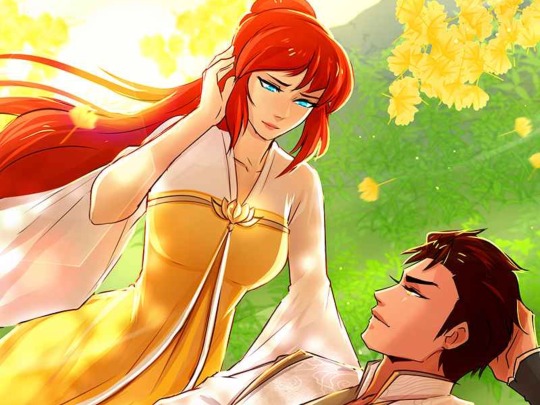
Princess Clove of the Azure Kingdom marries her sworn enemy, Prince Kyro of the Crimson Empire, to bring peace to the long-warring kingdoms. The two grow closer as they help each other navigate court politics and Raizo’s schemes.
This one’s my second-favorite Webtoon. I honestly like the art better in this one than in Purple Hyacinth. And the romance is certainly spicier than PH. But Subzero rivals PH in terms of plot and character development.
She’s Hopeless

When Tae-ung accepts a job as a secret bodyguard for heiress Gabin Kim, he has no idea what he signed up for. His charge proves difficult as she bullies everyone around her and seems bent on self-destruction. Furthermore, he has to keep his job a secret from everyone.
What makes this drama interesting is the different challenges that Tae-ung faces in his job. Between the normal high-school drama of bullying and romance, gaining new friends, and keeping an eye on Gabin, the male lead finds himself struggling to maintain his cover. The reader also gains new insight into different characters, especially Gabin, which gives different perspectives to their actions.
This story is currently on hiatus, but you can still read it on WEBTOON.
So I Married the Anti-fan
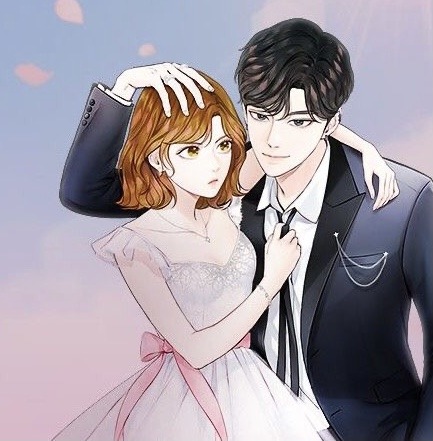
A mutual misunderstanding between pop idol Who Joon and journalist Genyoung escalates to the point where she becomes his #1 anti-fan. Both get roped into filming a reality show together, and soon they start learning more about each other. Romance begins to blossom between the ever-bickering twosome.
I love the dynamic of the main couple. Maybe I have a soft spot for couples that bicker on screen but still care for each other deep down. I especially love how both characters learn to see things from each other’s perspective and begin to fall for each other as they learn more about the other person.
There Must be Happy Endings
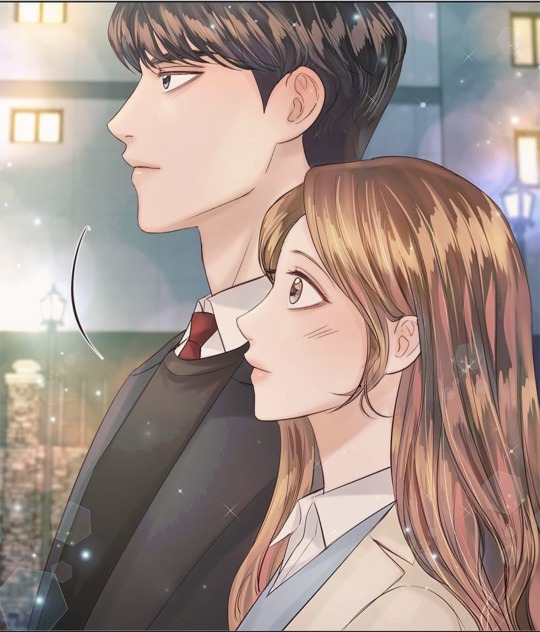
Seonjae Kang and Yeonu’s marriage ends in divorce and Seonjae’s tragic death. However, they get a do-over when Yeonu goes back in time before their divorce. This time, she is determined to prevent the tragedy and give them the happy ending they’ve always wanted.
This Webtoon shows an engaging and realistic portrayal of relationships. I enjoy watching the couple learn how to communicate and respect each other as they work to preserve their marriage. Also, the artwork is beautiful!
If I talked about all the Webcomics I enjoy, this post would never end. However, I hope this has given you some good stories to enjoy. What Webtoons are your favorites? Let me know in the comments and/or reblogs. Thanks for reading this post!
#webtoon#purple hyacinth webtoon#subzero webtoon#She’s hopeless WEBTOON#so i married the anti fan#there must be happy endings#no outtakes#Favorite webtoons
17 notes
·
View notes
Text
Seonjae dedicated his stage to his best friend... he wrote a beautiful lyrics and made his friend cry so hard.. I CAN’T STOP THE TEARS.. it was honestly the most beautiful thing i saw.. such an amazing friendship.. such an amazing person.. Seonjae is amazing... i’m crying so hard..
31 notes
·
View notes
Text
youtube
❤❤❤❤❤ ^-^
[ENG SUB] Park Kwang Ho x Kim Sun Jae - Crazy vs Crazy (HUMOR)
-------
Tunnel / 터널 - Korean Drama (2017)
Choi Jin-hyuk (최진혁) / Park Gwang-ho
Yoon Hyun-min (윤현민) / Kim Seon-jae
#터널#Tunnel#korean drama#kdrama#Choi Jinhyuk#choi jin hyuk#최진혁#Park Gwangho#Park Gwang ho#Yoon Hyunmin#Yoon Hyun min#윤현민#Kim Seonjae#Kim Seon jae#eng sub#Youtube
1 note
·
View note
Text
268 Directors and the end of the blog
This post marks the end of the Ask a Director experiment. I’m so grateful to all who have contributed, supported and engaged with it over the past six and a half years.
This blog was started at a time when I felt incredibly alone in the directing field. I had always been taught that a director operates solo, that it was a lonely career and above all, it was based on scarcity. This was a style of working and living that didn't fit for me. I wanted to talk to other directors about their practice and thoughts about the field, both national and international. This blog was started as a way to connect, to uplift other directors and to create a conversation about the changing field and practices.
It's surpassed all of these goals and brought me more joy than I can name.
I'm now at a moment where my practice and advocacy are taking different and exciting paths and it's time for me to put this site to bed. I remain committed to uplifting other directors, to talking about the practice, to flattening hierarchies, to opening doors for new ways of working, and leading rehearsal rooms, companies, and classrooms away from silos and vacuums. Featuring these 268 different directors was just the beginning.
I encourage you all to hire them (and others), advocate for them (and others) and choose to work in a system that values connection and generosity.
Abhishek Majumdar
Adam Fitzgerald
Alice Stanley
Aliza Shane
Amanda McRaven
Amy Corcoran
Amy Jephta
Anisa George
Ana Margineau
Andrew Scoville
Anna Stromberg
Anne Cecelia Haney
Ariel Francoeur
Arpita Mukherjee
Ashley Hollingshead
Ashley Marinaccio
Andrew Neisler
Beng Oh
Ben Randle
Ben Stockman
Benjamin Kamine
Beth Lopes
Bo Powell
Bogdan Georgescu
Bonnie Gabel
Brandon Ivie
Brandon Woolf
Brian Hashimoto
Cait Robinson
Caitlin Ryan O’Connell
Caitlin Sullivan
Catie Davis
Cara Phipps
Carol Ann Tan
Carsen Joenk
Chari Arespacochaga
Cheryl Faraone
Chloe Treat
Christin Eve Cato
Christine Zagrobelny
Christopher Diercksen
Colette Robert
Colleen Hughes
Cyndy Marion
Dado Gyure
Dan Rothenberg
Daniel Irizarry
Danielle Ozymandias
Danny Sharon
Dara Malina
David Charles
Dennis Yueh-Yeh Li
Derek Spencer
Donald Brenner
Doug Oliphant
Eamon Boylan
Elena Araoz
Emily Lyons
Emma Miller
Eric Kildow
Eric Wallach
Eric Powell Holm
Estefania Fadul
Evelina Stampa
Evren Odcikin
Evi Stamatiou
Francesca Montanile Lyons
Gabriel Vega Weissman
Gian Marco Riccardo Lo Forte
Graham Schmidt
Gregg Wiggans
Hannah Ryan
Hannah Wolf
Heather Bagnall
Horia Suru
Ilana Becker
Ilana Ransom Toeplitz
Illana Stein
Ioanna Katsarou
Ioli Andreadi
Irina Abraham Chigiryov
Iris Sowlat
Isaac Klein
J Paul Nicholas
Jack Tamburri
Jaclyn Biskup
Jacob Basri
Jake Beckhard
Jaki Bradley
Jamie Watkins
Javier Molina
Jay Stern
Jay Stull
Jenna Rossman
Jenna Worsham
Jennifer Chambers
Jenny Bennett
Jenny Reed
Jeremy Bloom
Jeremy Pickard
Jerrell Henderson
Jess Hutchinson
Jess Shoemaker
Jesse Jou
Jessi D Hill
Jessica Burr
Jessica Holt
Jillian Carucci
Joanne Zipay
Jo Cattell
John Michael Diresta
John Kurzynowski
Joe Hedel
Jonathan Munoz-Proulx
Jose Zayas
Josh Kelley
Josh Sobel
Joshua Kahan Brody
Joshua William Gelb
Julia Sears
Justin Schlabach
Kareem Fahmy
Karen Christina Jones
Kate Bergstrom
Kate Hopkins
Kate Jopson
Kate Moore Heaney
Katherine M. Carter
Katherine Wilkinson
Kathy Gail MacGowan
Katie Chidester
Kendall Cornell
Kendra Augustin
Kholoud Sawaf
Kimberly Faith Hickmann
Kim Weild
KJ Sanchez
Knud Adams
Kristin Marting
Kristin McCarthy Parker
Kristin Skye Hoffman
Kristy Chambrelli
Kristy Dodson
KT Shorb
Kyle Metzger
Kylie M. Brown
Larissa Fasthorse
Larissa Lury
Laura Brandel
Laura Steinroeder
Lauren Hlubny
Lauren Keating
Lavina Jadhwani
Jenn Haltman
Leta Tremblay
Lila Rachel Becker
Lillian Meredith
Lily Riopelle
Lindsey Hope Pearlman
Lisa Rothe
Lisa Sanaye Dring
Liz Thaler
Lori Wolter Hudson
Lucie Tiberghien
Luke Comer
Luke Tudball
Lyndsay Burch
Lynn Lammers
Mallory Catlett
Manon Manavit
Margarett Perry
Maridee Slater
Marina Bergenstock
Marti Lyons
Martin Jago
Matt Cosper
Matt Ritchey
Max Hunter
Megan Sandberg-Zakian
Megan Weaver
Meghan Finn
Melissa Crespo
Melody Erfani
Michael Alvarez
Michael T. Williams
Michaela Escarcega
Michelle Tattenbaum
Mimi Barcomi
Miranda Haymon
Molly Beach Murphy
Molly Clifford
Molly Noble
Morgan Gould
Morgan Green
Murielle Borst-Tarrant
Nana Dakin
Natalie Novacek
Neal Kowalsky
Nell Bang-Jensen
Nick Benacerraf
Noa Egozi
Norah Elges
Normandy Sherwood
Olivia Lilley
Orly Noa Rabinyan
Oscar Mendoza
Pablo Paz
Padraic Lillis
Patrick Walsh
Pete Danelski
Pirronne Yousefzadeh
Portia Krieger
Rachel Karp
Rachel Wohlander
Randolph Curtis Rand
Raz Golden
Rebecca Cunningham
Rebecca Martinez
Rebecca Wear
Renee Phillippi
Renee Yeong
Rich Brown
Rick St. Peter
Robert Schneider
Ryan Anthony Nicotra
Sammi Cannold
Sammy Zeisel
Sanaz Ghajar
Sara Holdren
Sara Lyons
Sara Rademacher
Sarah Elizabeth Wansley
Sarah Hughes
Sarah M. Chichester
Sarah Rose Leonard
Sash Bischoff
Scarlett Kim
Seonjae Kim
Seth Pyatt
Sharifa Elkady
Shaun Patrick Tubbs
Sherri Eden Barber
Simon Hanukai
Sophia Watt
Suchan Vodoor
Stephen Cedars
Steven Kopp
Steven Wilson
Talya Klein
Tana Siros
Tara Ahmadinejad
Tara Cioletti
Tara Elliott
Tatiana Pandiani
Taylor Reynolds
TerryandtheCuz
Tommy Schoffler
Tracy Bersley
Trevor Biship
Tyler Mercer
Wednesday Sue Derrico
Will Dagger
Will Davis
Will Detlefsen
Will Steinberger
Yojiro Ichikawa
Yoni Oppenheim
Zi Alikhan
Zoya Kachardurian
3 notes
·
View notes
